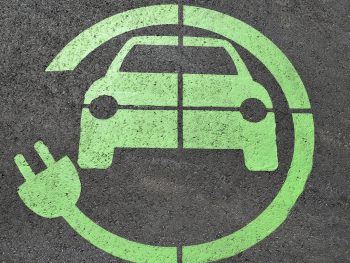Issues with charging electric vehicles in rural areas and during storms that cause power outages are just some of the challenges that fleets are facing in the real world.

An Association of Fleet Professional (AFP) webinar held yesterday (15 December) centred around the charging experiences of members of the industry body’s Kerbside Charging Group and featured James Rooney, fleet engineer, Centrica; David Fisher, fleet manager, Virgin Media O2; Dale Eynon, director, DEFRA Group Fleet Services; and Simon Gray, head of fleet and travel at SSE.
Dale explained that operating a fleet that largely functioned in rural places was presenting particular challenges.
“Large parts of the areas that we need to reach have literally nothing in the way of charging facilities. The public infrastructure is currently very much based around motorways and A-roads.
“There are potential solutions, however. One promising avenue is charger sharing, which means that we may be able to access private charging points on a pay-per-use basis using an app. We are also looking at increasing our return-to-base charging capacity, although this has limits.”
SSE’s Simon Gray explained the issues that the recent Storm Arwen had highlighted in terms of using EVs to respond to emergency situations.
“We had 700 engineers on the ground during Arwen who were trying to restore essential power to homes and businesses. The situation did raise a fundamental question – how do you keep EVs running during a power outage?
“We’re looking into answers to this conundrum and alternative resources may include options such as mobile chargers. Our view is that there will be solutions to this issue but that we just need to identify them.”
The meeting was also told about the AFP’s plans to draw up a national heat map showing where kerbside charging was needed. Based on feedback from 160,000 fleet drivers, this should be available early in 2022.
Paul Hollick, chair at the AFP, said: “Every day we are hearing from fleets, especially van fleets, that want to speed up the electrification of their operations but are being hampered by the problem of charging for drivers who do not have a drive or access to a charger.
“This is generally thought to be about 40% of drivers across all fleets but, when it comes to light commercial vehicles, we believe the figure to be nearer 70%.”
The AFP’s data-gathering exercise will bring postcode information for potential and existing EV drivers who need access to a kerbside charger.
“This is, we believe, an essential task and should open the door to much more widespread fleet EV adoption, much faster, than would occur if government and charging companies were simply trying to estimate where provision was required.”
The AFP’s next webinar takes place at 9:30am on Wednesday 19 January. Called ‘Alternative Forms of Transport Usage in Your Fleet Policy’, it is designed to help businesses taking their first steps towards adopting mobility solutions.
To register to attend the webinar, click here.

